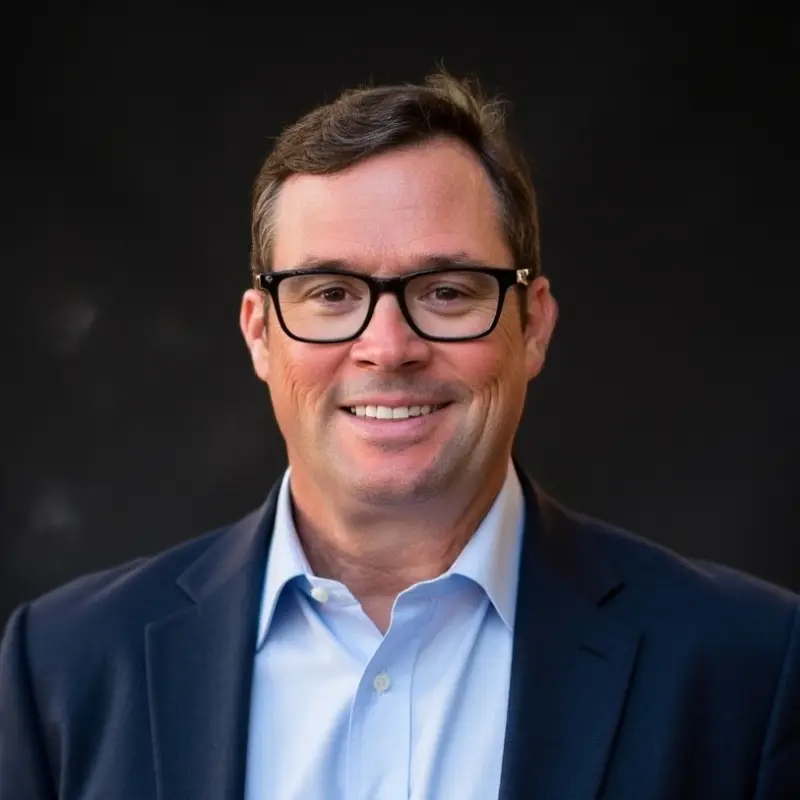
Jim McLoone
About
Hello, I’m Jim. I’m a licensed mental health counselor based in Florida, and my practice is built on one simple foundation: people deserve a space where they can be understood, not judged.I take a calm, straightforward, and compassionate approach to therapy. My goal is to offer a steady environment where you can talk openly, make sense of what you’re carrying, and feel supported as you move toward real, lasting change. Over the years, I’ve learned that progress doesn’t come from perfection—it comes from honest conversations, practical tools, and feeling safe enough to show up exactly as you are.In our work together, we’ll move at your pace. We’ll look at patterns, build resilience, and sort out what’s getting in the way of the life you want. I’m solution-focused without rushing you, reflective without getting lost in the weeds, and always rooted in respect for your lived experience. Reaching out for therapy takes guts, and I take that seriously. My role is to walk alongside you with clarity, empathy, and a healthy dose of real-world perspective.It would be a privilege to get to know you and support you in finding steadiness, confidence, and a deeper sense of well-being.Education & LicensureMaster of Science in Clinical Mental Health Counseling; Licensed Mental Health Counselor (LMHC), FloridaAdditional training in evidence-based treatment for substance use, anxiety, and OCD-related disordersWhat motivated you to specialize in working with autistic adults?I was drawn to supporting autistic adults because so many of them navigate a world that doesn’t always slow down long enough to understand their experiences. Time and again, I saw intelligent, insightful, capable adults being misunderstood, mislabeled, or overlooked. I wanted to create a therapeutic space where their strengths are recognized, their communication styles are respected, and their challenges are met with genuine understanding—not judgment. Helping autistic adults build lives that fit them (instead of forcing themselves into someone else’s blueprint) is deeply meaningful work for me.How do you bring a strengths-based, affirming approach to your client work?I believe people thrive when their abilities are honored—not overshadowed by what they’ve been told is “wrong” with them. My approach focuses on what clients naturally do well, how they process the world, and the unique skills they bring to their relationships, careers, and communities. From there, we build strategies that align with their strengths rather than fight against them. It’s incredibly powerful to watch clients embrace their identity, gain confidence, and realize they don’t need to fit anyone else’s mold to live a meaningful, fulfilling life
What made you want to specialize in working with autistic and neurodivergent clients?My path into this work is personal as much as it is professional. I was diagnosed with dyslexia later in life—right around the time my son received his own diagnosis. That moment was a turning point. Suddenly, a lot of things in my life made sense: the ways I processed information, the strengths I leaned on to compensate, and the challenges I worked twice as hard to navigate quietly.Seeing my son begin his own journey gave me a front-row seat to both the beauty and the struggle of being neurodivergent in a world that still doesn’t fully understand it. And it deepened my respect for every neurodivergent adult who has spent years feeling “different,” misunderstood, or forced to mask just to get through the day.I chose to specialize in working with autistic and neurodivergent adults because I know what it feels like to grow up without a name for the way your brain works—and how profoundly validating it is when someone finally sees you clearly. I wanted to create a therapeutic space where people aren’t asked to shrink, hide, or “fix” themselves, but instead are supported in understanding and embracing who they are.The neurodivergent community is filled with creativity, depth, perseverance, and insight. My work is about honoring those strengths, helping clients build on them, and walking alongside them as they carve out lives that fit them—not someone else’s expectations.At the end of the day, this isn’t just a clinical specialty for me. It’s a calling rooted in empathy, lived experience, and a deep belief that neurodivergent adults deserve care that truly understands and affirms them.
In my work, I focus less on “fixing problems” and more on helping people recognize the strengths they already possess—often the very strengths they’ve overlooked or been criticized for. I take a strengths-based, affirming approach because I’ve seen firsthand how powerful it is when someone finally feels recognized for what’s working in their life, not just what’s difficult.My role is to help clients reckon with the full picture of who they are—talents, patterns, lived experiences, and the resilience they’ve built over time—and then use those strengths as the foundation for change. I meet clients where they are, with compassion and curiosity, and I help them build on their natural abilities in ways that feel authentic and sustainable.Instead of viewing challenges as flaws, we look at them as information: clues about needs, stressors, and the environments where someone may not have been fully understood. From there, we work together to develop strategies that amplify strengths, support nervous-system safety, and create meaningful progress.I’m committed to being an affirming presence for every client—someone who respects their identity, honors their lived experience, and believes deeply in their capacity to grow. As part of that commitment, I also engage with professional communities focused on neurodiversity-affirming care and trauma-informed practice, ensuring my work stays grounded, informed, and supportive of each individual I serve.Ultimately, my aim is simple: to offer a space where you feel seen, supported, and empowered to move toward your full potential—on your terms, at your pace.

.webp)




